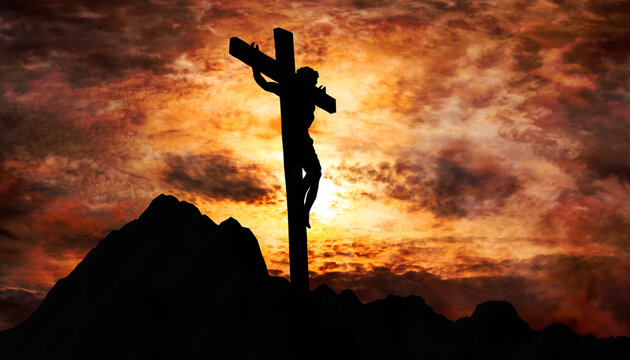Good Friday, observed by Christians worldwide, is a solemn and significant day that commemorates the crucifixion of Jesus Christ and his sacrificial death on the cross. This poignant event, central to Christian theology, is celebrated annually during Holy Week, the period leading up to Easter Sunday. Good Friday holds deep spiritual and theological significance for Christians, symbolizing the redemption and salvation of humanity through the suffering and death of Jesus. To fully understand the origins and significance of Good Friday, it is essential to delve into its historical context, theological implications, and enduring impact on Christian faith and practice.
The origin of Good Friday can be traced back to the events described in the New Testament of the Bible, particularly the Gospels of Matthew, Mark, Luke, and John. According to Christian tradition, Jesus Christ, the Son of God, was betrayed by one of his disciples, Judas Iscariot, and arrested by the Jewish authorities in Jerusalem during the Passover festival. He was subjected to a series of trials before the Jewish Sanhedrin and the Roman governor, Pontius Pilate, who ultimately sentenced him to death by crucifixion.
The crucifixion of Jesus, which took place on a hill outside Jerusalem known as Golgotha or Calvary, was a brutal and agonizing form of execution practiced by the Romans. Jesus was nailed to a wooden cross and left to die alongside two criminals, as crowds mocked him and soldiers cast lots for his clothing. Despite the physical and emotional suffering he endured, Jesus demonstrated unwavering faith and compassion, praying for forgiveness for his persecutors and promising paradise to one of the criminals crucified alongside him.
For Christians, Good Friday is not merely a historical event but a profound theological mystery that lies at the heart of their faith. The crucifixion of Jesus is understood as the culmination of God’s plan for the redemption and reconciliation of humanity. According to Christian doctrine, Jesus willingly offered himself as a sacrificial lamb, bearing the sins of the world and atoning for the sins of humanity through his death on the cross. This act of selfless love and divine grace is seen as the ultimate expression of God’s mercy and forgiveness towards sinful humanity.
The significance of Good Friday is further underscored by its role in the Christian liturgical calendar and its connection to the celebration of Easter. Good Friday marks the beginning of the Paschal Triduum, a three-day period of solemn reflection and prayer that includes Good Friday, Holy Saturday, and Easter Sunday. During this time, Christians commemorate the passion, death, and resurrection of Jesus, culminating in the joyful celebration of Easter, which symbolizes the victory of life over death and the promise of salvation for all who believe.
The observance of Good Friday varies across different Christian denominations and cultural traditions, with diverse rituals, liturgies, and devotional practices observed around the world. In many churches, Good Friday services are marked by solemn readings of the Gospel accounts of Jesus’ passion and death, prayers of intercession for the needs of the world, and veneration of the cross, symbolizing the victory of Christ’s sacrifice over sin and death. Some traditions also include the performance of sacred music, such as Bach’s St. Matthew Passion or Handel’s Messiah, which evoke the profound emotions and theological themes of the crucifixion narrative.
In addition to its religious significance, Good Friday has inspired countless works of art, literature, and music that reflect the depth of human experience and the enduring power of faith. Iconic paintings such as Leonardo da Vinci’s “The Last Supper” and Michelangelo’s “Pieta” depict the passion and suffering of Jesus with striking emotional intensity, while literary works like Johann Sebastian Bach’s “St. Matthew Passion” and John Milton’s “Paradise Lost” explore the theological and philosophical dimensions of the crucifixion.
Moreover, Good Friday serves as a poignant reminder of the ongoing suffering and injustice in the world and calls Christians to embody the values of compassion, justice, and reconciliation in their lives. As they contemplate the cross on Good Friday, believers are invited to reflect on the profound mystery of God’s love revealed in Christ’s sacrifice and to respond with humility, gratitude, and commitment to following in the footsteps of Jesus.
In conclusion, Good Friday stands as a profound testament to the central tenets of the Christian faith: the sacrificial love of God, the redemption of humanity through Christ’s death and resurrection, and the promise of salvation for all who believe. From its origins in the events of the first century to its enduring significance in the lives of believers today, Good Friday continues to inspire awe, reverence, and devotion among Christians worldwide, inviting them to enter more deeply into the mystery of God’s boundless love and mercy revealed in the crucifixion of Jesus Christ.







Discussion about this post